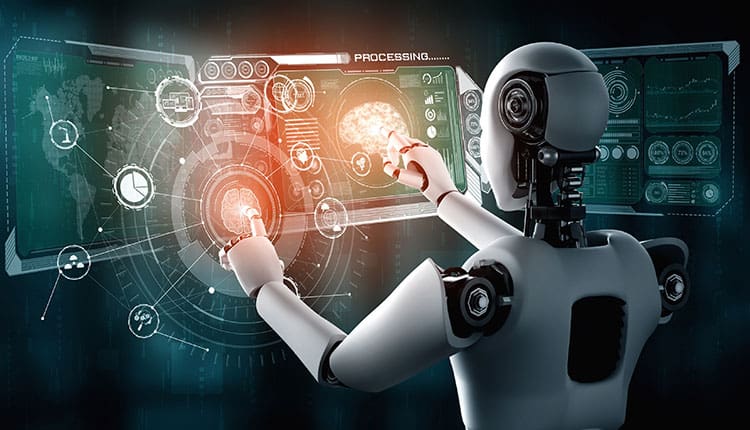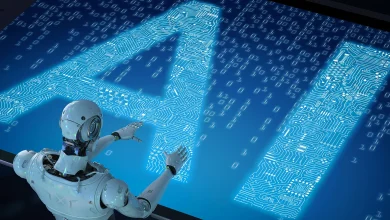How AI services Are Reshaping the Future of Education

In today’s rapidly evolving technological landscape, the integration of artificial intelligence (AI) services into various sectors is becoming increasingly prevalent. One of the most transformative areas experiencing this revolution is education. The utilization of AI in education is altering traditional teaching and learning methods, creating new possibilities for personalized and effective learning experiences. In this blog post, we’ll delve into the role of Artificial Intelligence Services in education and explore the ways they are reshaping the future of learning.
Understanding Artificial Intelligence Services
Artificial Intelligence, often referred to as AI, is a branch of computer science that involves the development of machines and systems capable of performing tasks that typically require human intelligence. These tasks encompass a range of activities, from problem-solving and decision-making to speech recognition and natural language processing. AI services leverage algorithms, data, and advanced computing capabilities to simulate human-like cognitive processes, making them invaluable tools in various industries, including education.
The Emergence of AI in Education
The incorporation of AI into education has the potential to revolutionize the way students learn and educators teach. Traditionally, education has followed a one-size-fits-all model, where the same material is presented to all students, regardless of their individual learning styles, pace, and preferences. AI services are changing this paradigm by offering personalized and adaptive learning experiences.
1. Personalized Learning– AI services
AI-driven educational platforms analyze students’ learning patterns and behaviors, enabling them to provide tailored content and activities. Through continuous assessment and monitoring, these platforms adapt the learning journey to meet each student’s unique needs. For example, if a student struggles with a particular concept, the AI system can provide additional resources, exercises, or explanations until the student grasps the topic.
2. Enhanced Engagement
AI services introduce interactive and engaging elements into the learning process. Virtual tutors, chatbots, and conversational agents simulate human interaction, making learning more dynamic and interactive. This engagement factor can help maintain students’ interest and motivation, leading to improved learning outcomes.
AI Services Transforming Education
The influence of AI services on education extends beyond personalized learning and engagement. Let’s explore several key areas where AI is reshaping the future of education.
1. Intelligent Content Creation – AI services
AI tools can automate content creation, generating quizzes, tests, assignments, and even textbooks. This not only reduces the burden on educators but also ensures that educational materials are up-to-date and aligned with the latest research and developments.
2. Data-Driven Insights
AI services collect and analyze vast amounts of data related to students’ performance and behavior. Educators can use these insights to identify areas where students struggle the most, address learning gaps, and optimize their teaching strategies. This data-driven approach empowers educators to make informed decisions to enhance learning outcomes.
3. Language Learning and Translation
Language barriers can hinder the global exchange of knowledge. AI-powered language learning applications enable students to learn new languages at their own pace. Additionally, real-time translation tools powered by AI facilitate communication and collaboration among students from different linguistic backgrounds.
4. Special Needs Education
AI services are transforming the landscape of special needs education. With adaptive technologies and assistive tools, students with disabilities can receive customized support. For example, text-to-speech and speech-to-text tools assist students with dyslexia or speech impairments in accessing and conveying information effectively.
5. Automating Administrative Tasks
Educators spend a significant amount of time on administrative tasks, such as grading assignments and managing schedules. AI services can automate these tasks, freeing up educators’ time to focus on more impactful aspects of teaching, such as developing innovative learning materials and building strong student-teacher relationships.
Ethical and Social Considerations
As AI services become more ingrained in education, it’s essential to address ethical and social considerations. Data privacy, algorithmic bias, and the potential for replacing human educators are among the concerns that must be navigated responsibly. Striking a balance between the advantages of AI and the preservation of human connection in education is crucial.
The Future of AI in Education
The trajectory of AI in education holds immense promise. As technology advances, AI services will become even more sophisticated, offering highly personalized learning experiences that adapt in real-time to individual progress. However, it’s important to remember that while AI can enhance education, the human element remains irreplaceable. Educators provide mentorship, emotional support, and inspiration that AI cannot replicate.
Conclusion
AI services are reshaping the future of education by ushering in personalized learning experiences, enhancing engagement, automating administrative tasks, and transforming various aspects of the education landscape. The integration of AI in education holds the potential to democratize learning, bridge educational gaps, and empower students with diverse learning needs. To fully harness the benefits of AI in education, it’s imperative to navigate its implementation thoughtfully and ethically, ensuring that human connection and learning remain at the heart of this technological transformation.



